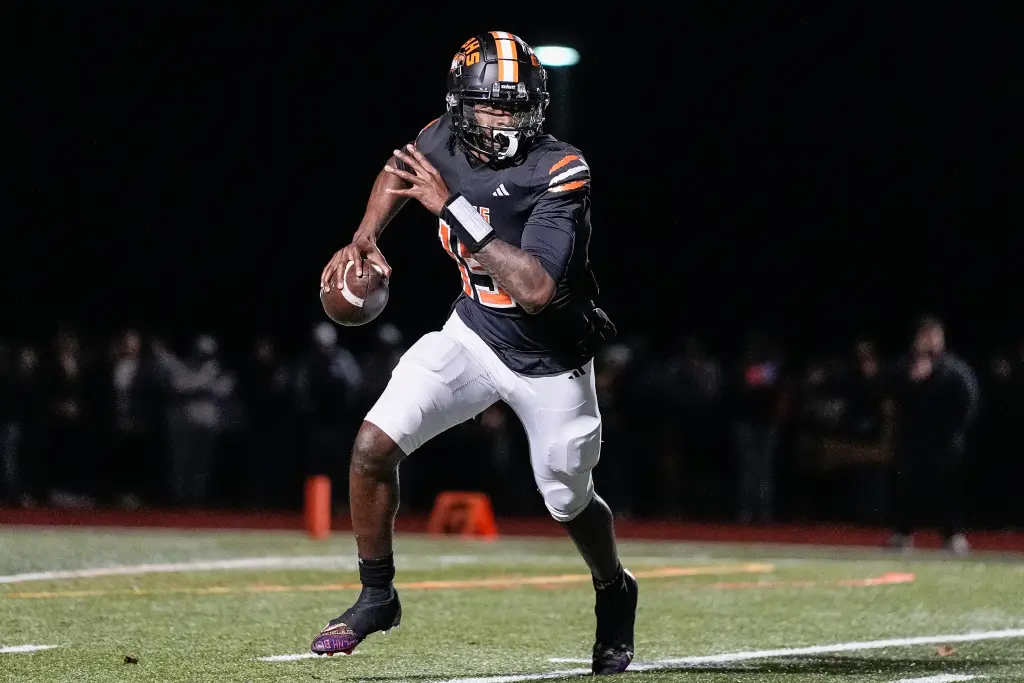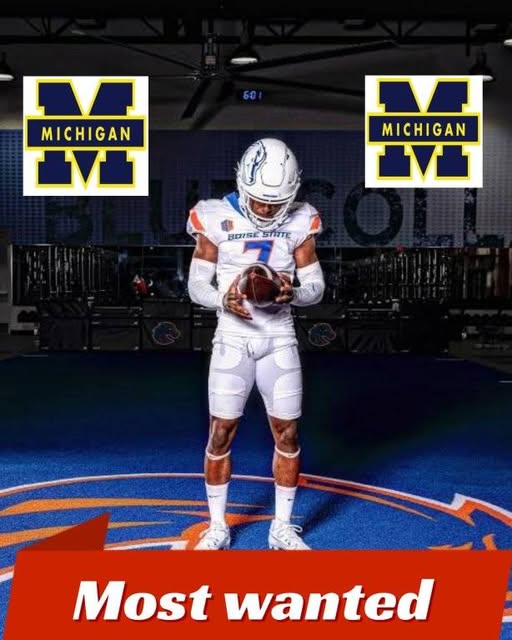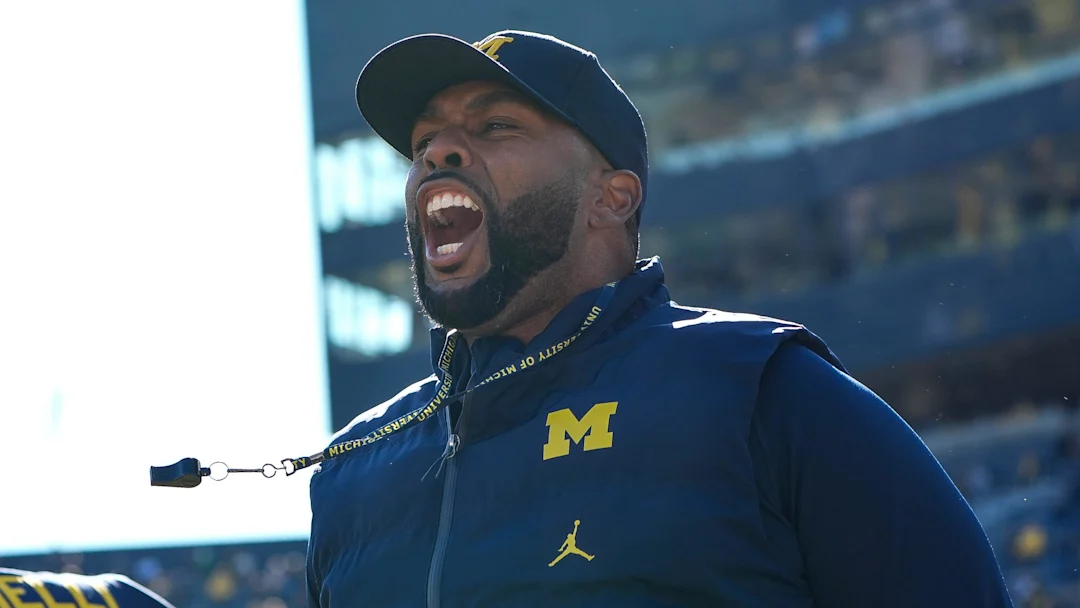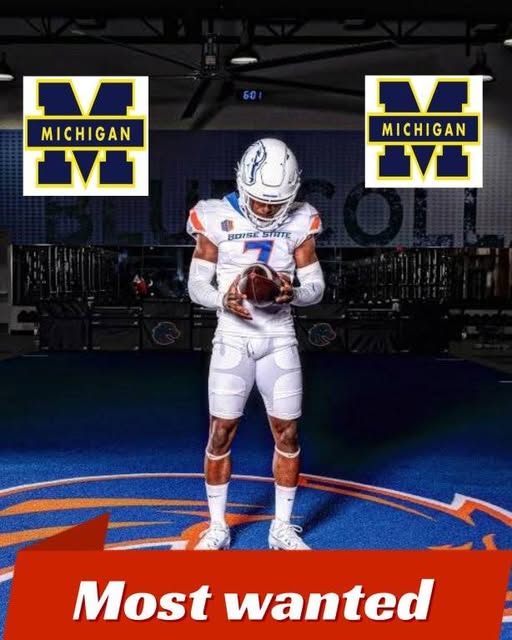In a remarkable turn of events in college football recruiting, Michigan has secured the commitment of the nation’s top quarterback recruit, Bryce Underwood, with an eye-popping $10.5 million NIL (Name, Image, and Likeness) deal. The unprecedented offer has sent shockwaves through the recruiting landscape, signaling the growing influence of NIL in shaping decisions of elite prospects.
A Game-Changing Offer
Bryce Underwood, a highly coveted high school quarterback from Belleville, Michigan, had initially committed to LSU (Louisiana State University). However, Michigan’s aggressive and record-breaking NIL offer has successfully convinced the young star to flip his commitment to the Wolverines, marking a significant victory for head coach Jim Harbaugh and the University of Michigan’s football program.
Underwood, a 6-foot-2, 210-pound dual-threat quarterback, is widely regarded as the top high school quarterback in the 2025 recruiting class. His decision to switch allegiances to Michigan is seen as a direct result of the financial opportunities provided by the Wolverines’ ambitious NIL deal. This marks a new era of recruitment, where NIL deals are no longer just an added incentive but a central factor in the recruiting process.
The Impact of NIL in College Recruiting
The NIL landscape has undergone a dramatic transformation since its inception in July 2021. Initially designed to allow college athletes to profit from their personal brand, NIL deals have now become a pivotal element in college recruiting. The $10.5 million deal offered to Underwood is a clear indication that top-tier recruits are no longer solely focused on traditional factors such as playing time or coaching staff. Instead, financial incentives play a significant role in where they choose to play.
The deal from Michigan’s boosters is one of the largest NIL offers ever made to a high school recruit, and it sets a new benchmark for future NIL negotiations. Underwood’s commitment to Michigan, following this major financial offer, further solidifies the role of NIL in reshaping the recruiting process. Schools with large booster networks and high-profile athletic programs, like Michigan, are now in a position to attract top-tier talent by offering lucrative endorsement deals that rival professional contracts.
What Does This Mean for LSU?
Underwood’s decision to decommit from LSU and accept Michigan’s NIL offer has left the LSU football program scrambling to adjust. LSU, which had been a frontrunner in Underwood’s recruitment, now faces the challenge of moving forward without the nation’s top quarterback prospect. The loss of Underwood is a significant blow to head coach Brian Kelly’s recruiting efforts, especially considering how highly LSU had prioritized Underwood as the future face of its program.
While LSU remains a powerhouse in college football, the rising prominence of NIL has fundamentally altered the recruiting landscape, making it more difficult for traditional programs to maintain their hold on top recruits without matching or exceeding NIL offers from rival schools.
Bryce Underwood’s Legacy and Impact
Bryce Underwood’s recruitment has been one of the most closely followed stories in college football, and his decision to join Michigan only adds to the excitement surrounding his future. Known for his strong arm, mobility, and football IQ, Underwood is expected to make an immediate impact at Michigan. His decision to play for the Wolverines will not only elevate the program’s national championship aspirations but also further enhance Michigan’s recruiting efforts moving forward.
Underwood’s arrival in Ann Arbor will also significantly boost the Wolverines’ ability to recruit other elite players. As one of the most influential recruits in recent memory, Underwood’s commitment will serve as a major selling point for Michigan in future recruiting battles.
The Role of NIL in Shaping College Football’s Future
Underwood’s massive NIL deal is a glimpse into the future of college football, where recruiting decisions may be increasingly influenced by the financial packages offered by schools, rather than just athletic factors like coaching and playing time. The ability of Michigan to make such a monumental offer also highlights the growing divide between programs with strong financial backing and those without the same resources.
As NIL deals become a central component of college football recruiting, schools with large alumni bases, strong athletic programs, and wealthy booster networks will have a distinct advantage in attracting top talent. This new paradigm raises important questions about the future of college sports, particularly regarding fairness, competitive balance, and the potential for “pay-for-play” dynamics to overshadow traditional recruitment factors.
Conclusion
Bryce Underwood’s decision to commit to Michigan after receiving a record-breaking $10.5 million NIL deal marks a new chapter in the evolution of college football recruiting. It underscores the immense power of NIL in shaping decisions made by top recruits, and how it is transforming the college sports landscape. As more schools embrace the financial opportunities of NIL, it is clear that the future of college football will be heavily influenced by financial incentives, setting a precedent that will change recruiting for years to come.
For Michigan, securing Underwood represents a major win in the battle for elite recruits, while LSU now faces a challenging road ahead to recapture its top spot in Underwood’s recruitment class. The continued evolution of NIL will undoubtedly play a significant role in shaping the future of college football, where financial power now holds a pivotal role in securing the next generation of superstars.



